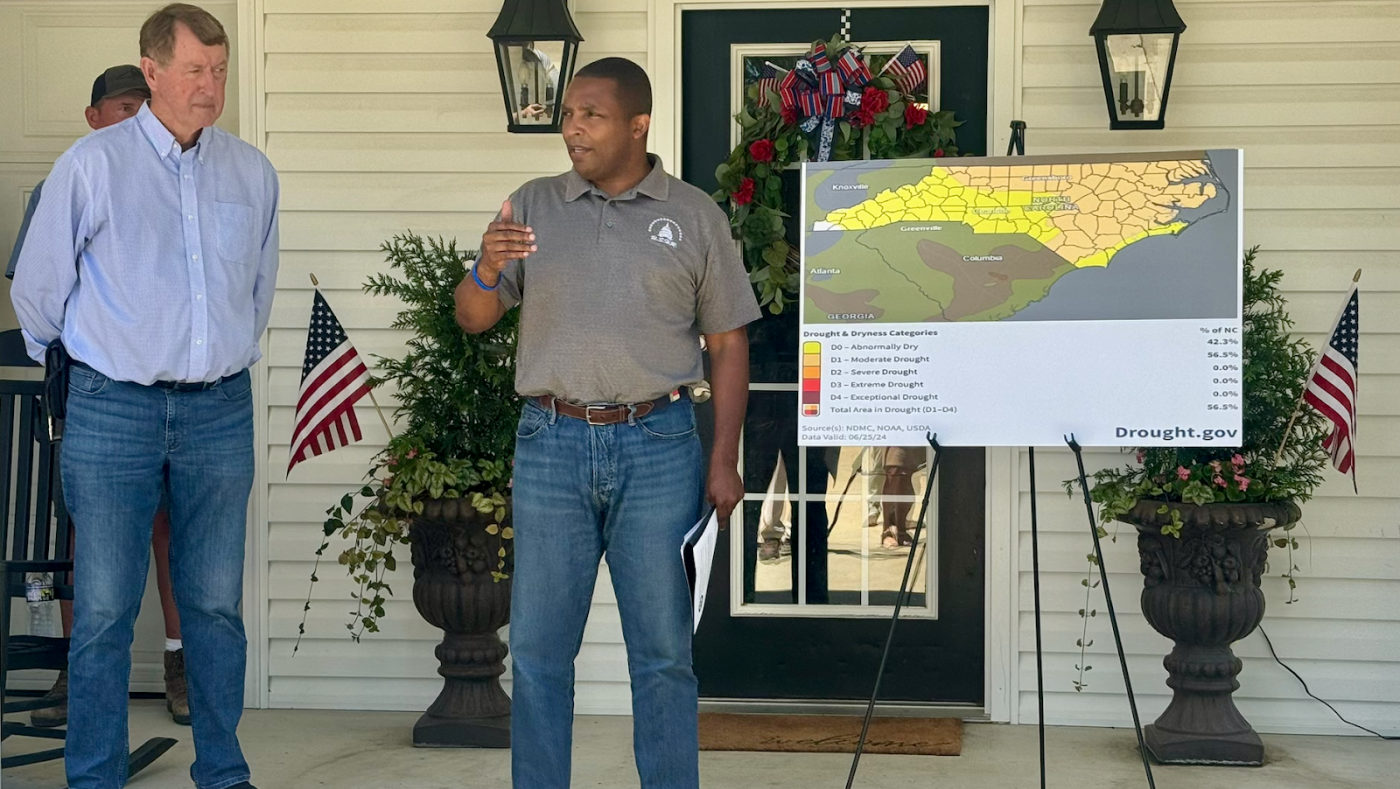WASHINGTON, D.C. — U.S. Congressman Don Davis (NC-01) held a joint press conference with the United States Department of Agriculture (USDA) Farm Service Agency (FSA) State Executive Director Bob Etheridge at Varnell Farms in Rocky Mount today, where he highlighted the need for an emergency declaration. Following the press conference, Congressman Davis and USDA FSA Bob Etheridge also visited Varnell Farms and Rest-A-Bit Farms to inspect corn and tobacco crops.
“Every county in eastern North Carolina is currently grappling with the drought,” said Congressman Don Davis. “We must take immediate action to offer unwavering support to our farmers and rural communities experiencing losses from this extreme weather event.”
Currently, 99 out of 100 of North Carolina’s counties are experiencing varying levels of drought, even though it rained throughout much of North Carolina from June 29 to June 30. All counties east of Raleigh, including all of North Carolina’s First Congressional District, are experiencing moderate drought (D1 level).
“1 in 5 jobs in North Carolina are dependent on agriculture,” said Bob Etheridge, USDA FSA. “Little to no rain in over a month in some places is a recipe for disaster for farmers. For those of us who live in town, we see the effects, but for our farmers, they feel them.”
Only 4.5% of the state was classified as abnormally dry two weeks ago. Since then, a heat dome has set in, spiking temperatures and preventing any significant rainfall. This is only the second time since 2000 that more than half of North Carolina has seen drought classifications worsen, according to the N.C. Department of Environmental Quality.
“This June is one of the driest on record and definitely the driest I can remember,” said Shane Varnell, owner of Varnell Farms. “The heat has also done as much damage as the drought. Having both is a recipe for disaster.”
Agriculture is the number one industry in North Carolina, bringing in $111.1 billion annually to the state. In NC-01, over $2.989 billion worth of agricultural products are sold yearly, accounting for 16 percent of state agriculture sales.
Definitions of levels of drought and impact:
- D0, Abnormally Dry: Short-term dryness slowing planting, growth of crops or pastures. Some lingering water deficits. Pastures or crops not fully recovered.
- D1, Moderate Drought: Some damage to crops, pastures. Streams reservoirs, or wells low, some water shortages developing or imminent. Voluntary water use restrictions requested.
- D2, Severe Drought: Crop or pasture loss likely. Water shortages common. Water restrictions imposed.
- D3, Extreme Drought: Major crop/pasture losses. Widespread water shortages or restrictions.
- D4, Exceptional Drought: Exceptional and widespread crop/pasture losses. Shortages of water in reservoirs, streams, and wells creating water emergencies.
Farmers and producers impacted by the drought can visit farmers.gov/protection-recovery/drought for helpful resources.
Image: NC Farm Service Agency (FSA) State Executive Director Bob Etheridge (left) and U.S. Congressman Don Davis (NC-01) speak at Varnell Farms in Edgecombe County, NC on July 2, 2024.


